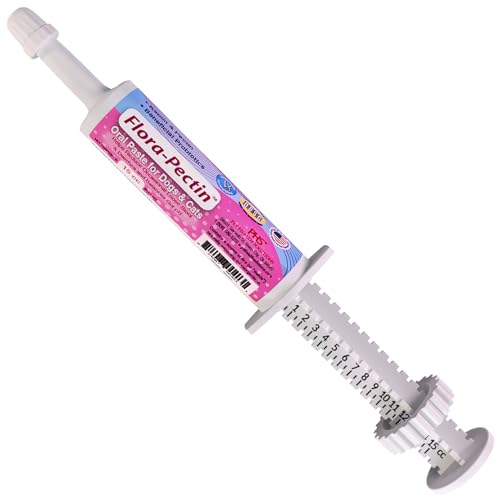Possible Causes of Diarrhea in Cats after Neutering
If you’re wondering why your beloved feline companion is experiencing diarrhea after being neutered, there are a few potential reasons to consider. As a cat lover, enthusiast, and expert, I understand how concerning this can be. Let’s explore some possible causes of post-neutering diarrhea in cats:
1. Changes in Diet: After surgery, your cat’s appetite and digestive system may be affected. It’s not uncommon for cats to experience a sensitive stomach during this time. Switching them to a new or different type of food abruptly could lead to gastrointestinal disturbances and diarrhea.
2. Stress-related Factors: Cats are sensitive creatures, and any major change in their routine can cause stress. The surgery itself, the unfamiliar environment of a veterinary clinic, and the recovery process can all contribute to stress levels. This stress can disrupt their gut flora, leading to diarrhea.
3. Medications and Anesthesia: During the neutering procedure, cats are typically given anesthesia and may be prescribed pain medications for their recovery. These medications can sometimes irritate the digestive system, resulting in diarrhea.
It’s essential to remember that every cat is unique, and what affects one may not impact another in the same way. Diarrhea after neutering is generally temporary and should resolve on its own within a few days. However, if the diarrhea persists, worsens, or if your cat shows other concerning symptoms like vomiting, lethargy, or loss of appetite, it’s crucial to consult your veterinarian for further evaluation and guidance.
Understanding the potential causes of post-neutering diarrhea in cats can help you provide the necessary care and support for your furry friend during their recovery process. Stay tuned for the next section, where we will delve into tips on treating and preventing diarrhea in cats after being neutered.
Changes in Diet as a Cause of Diarrhea
When it comes to taking care of our furry friends, their diet plays a crucial role in their overall health and well-being. You might notice some changes in your cat’s digestion after they have been neutered. One possible cause of post-neutering diarrhea can be attributed to changes in their diet.
Why does a cat’s diet matter after being neutered?
Neutering can have an impact on your cat’s metabolism and appetite. As a result, their dietary needs may change. It’s important to provide them with a high-quality, balanced diet that meets their nutritional requirements. However, sudden changes in their diet can sometimes trigger diarrhea.
What dietary changes can lead to diarrhea?
Switching to a new brand or type of food can be a common cause of digestive upset in cats. Even a change in the flavor or texture of their usual food can sometimes lead to gastrointestinal disturbances. Additionally, feeding your cat table scraps or introducing new treats can disrupt their digestion and result in diarrhea.
How can you help your cat’s digestion during their recovery?
To prevent diarrhea after neutering, it’s best to stick to their regular diet. If you do want to make any changes to their food, it’s important to do it gradually. Slowly introduce new food by mixing it with their current one and gradually increasing the proportion over a week or so. This allows their digestive system to adjust and minimizes the likelihood of diarrhea.
Remember, every cat is unique, and their dietary needs may vary. If you’re unsure about what diet is best for your cat, it’s always a good idea to consult with your veterinarian. They can provide expert guidance tailored to your cat’s specific needs.
Now that we’ve explored the potential role of diet in post-neutering diarrhea, let’s move on to another factor that can contribute to this common issue.
Stress as a Cause of Diarrhea in Neutered Cats
As a cat lover, you may be surprised to learn that stress can be a common cause of diarrhea in neutered cats. When cats undergo surgery, such as neutering, it can be a stressful experience for them. Just like humans, cats can experience anxiety and discomfort during this time. This stress can potentially disrupt their digestive system and lead to diarrhea.
There are a few reasons why a neutered cat may experience stress after surgery.
- Change in Routine: Cats are creatures of habit, and any sudden change in their routine can cause stress. The surgery itself can disrupt their usual schedule, leading to anxiety. Additionally, the recovery period may require changes in activity levels or restriction of certain behaviors, which can further contribute to stress.
- Pain and Discomfort: The surgery can cause some amount of pain and discomfort for your furry friend. This discomfort can lead to stress, which in turn can affect their digestive system.
- Anesthesia: Cats are highly sensitive to anesthesia, and some cats may experience side effects like nausea and gastrointestinal upset. These side effects can trigger diarrhea in the days following the surgery.
To help your cat cope with stress and reduce the chances of diarrhea, it’s important to provide them with a calm and comforting environment during their recovery period. Here are some tips:
- Create a Quiet Space: Set up a cozy, quiet space for your cat to rest and recover. Make sure it’s away from any loud noises or disruptions that could add to their stress.
- Stick to Routine: Try to maintain a consistent routine as much as possible, even if there are necessary changes due to their recovery. Cats thrive on predictability, and sticking to their usual feeding and play times can help reduce stress.
- Provide Comfort: Ensure that your cat has a comfortable bed or blanket to relax on. Consider using calming pheromone diffusers or sprays, which can help create a soothing atmosphere.
Medications and Surgery-related Factors
After your cat’s neutering surgery, it’s not uncommon for them to experience diarrhea. This can be due to a variety of factors, including medications and the surgery itself. Let’s explore why this might happen and how you can help your furry friend during this time.
When your cat undergoes surgery, they may receive medications such as antibiotics or pain relievers. While these medications are important for their recovery, they can sometimes upset their delicate digestive system. Antibiotics, for example, can disrupt the balance of good bacteria in their gut, leading to diarrhea. Pain relievers, on the other hand, can cause gastrointestinal irritation, which may result in loose stools.
Additionally, the surgery itself can be a factor in post-neutering diarrhea. The anesthesia used during the procedure can have an impact on your cat’s digestive system, leading to temporary changes in bowel movements. The stress and discomfort related to the surgery can also contribute to diarrhea.
To help your cat navigate through this period, it’s important to follow your veterinarian’s instructions regarding medication administration. Ensure that you administer the prescribed medications at the recommended dosage and frequency. If your cat develops diarrhea, it’s essential to notify your vet right away. They may adjust the medication or provide additional supportive measures to alleviate the symptoms.
In addition, you can try a few home remedies to help soothe your cat’s digestive system. Offer small, frequent meals of easily digestible food, such as boiled chicken or a specialized gastrointestinal diet prescribed by your veterinarian. Make sure to provide plenty of fresh water to keep your cat hydrated.
Remember to monitor your cat’s litter box habits closely. If the diarrhea persists for more than a day or if you notice additional symptoms such as lethargy, vomiting, or loss of appetite, seeking veterinary advice is crucial. Your vet can investigate further and provide appropriate treatment if necessary.
Treating Diarrhea in Cats after Neutering
When it comes to your beloved feline friend, you want nothing but the best for them. So, if your cat is experiencing diarrhea after being neutered, it’s natural to be concerned. Don’t worry, though. There are steps you can take to help treat and alleviate this uncomfortable situation.
Follow Veterinarian Instructions
First and foremost, it’s crucial to follow your veterinarian’s instructions. They are there to guide you through this process and provide the best care for your furry friend. Make sure you’re administering any prescribed medications, such as antibiotics or pain relievers, correctly. Medications can sometimes disrupt a cat’s digestive system and lead to diarrhea. So, it’s essential to stick to the prescribed dosage and schedule.
Opt for Easily Digestible Food
Another way to help your cat with post-neutering diarrhea is to offer them easily digestible food. Switching to a bland diet for a few days can give their digestive system a chance to settle down. Options like boiled chicken or white fish can be gentle on their stomachs. Remember to avoid any spices, seasonings, or additions that could aggravate the situation. Your cat’s health and comfort are of the utmost importance, so treat their dietary needs with care.
Monitor Litter Box Habits
Keep an eye on your cat’s litter box habits during this time. Regularly checking their stool consistency, frequency, and any signs of improvement or worsening is essential. If the diarrhea persists or there are additional concerning symptoms, don’t hesitate to seek veterinary advice. They can provide further guidance and evaluate your cat’s condition more closely.
Treating diarrhea in cats after neutering is possible with proper care and attention. By following your veterinarian’s instructions, offering easily digestible food, and monitoring your cat’s litter box habits, you can help your furry companion through this uncomfortable phase. Remember, always prioritize your cat’s well-being and consult a veterinarian for professional advice.
Conclusion
Treating diarrhea in cats after being neutered requires careful attention and following your veterinarian’s instructions. Administering medications as prescribed is essential for your cat’s recovery. Additionally, providing easily digestible food like boiled chicken or white fish can help settle their digestive system.
Monitoring your cat’s litter box habits is crucial during this time. If the diarrhea persists or worsens, it’s important to seek veterinary advice promptly. Remember, your veterinarian is the best resource for diagnosing and treating any health concerns your cat may have.
By following these tips and providing proper care, you can effectively treat diarrhea in cats after neutering. Remember, your cat’s health and well-being are of utmost importance, and with your love and attention, they will soon be back to their happy and healthy selves.
Thank you for reading this article and taking the necessary steps to ensure your cat’s recovery. We hope that the information provided has been helpful to you and your furry friend. If you have any further questions or concerns, don’t hesitate to reach out to your veterinarian for guidance.
Frequently Asked Questions
Q: What is the main focus of the article?
A: The article focuses on providing tips on treating diarrhea in cats after being neutered.
Q: Why is it important to follow veterinarian instructions?
A: Following veterinarian instructions is crucial because they have the expertise to provide appropriate treatment for the cat’s condition.
Q: What kind of food can help settle a cat’s digestive system?
A: Offering easily digestible food, such as boiled chicken or white fish, can help settle the cat’s digestive system.
Q: Why is monitoring litter box habits important?
A: Monitoring litter box habits helps in observing the cat’s bowel movements and identifying any persistent or worsening diarrhea.
Q: What should one do if the diarrhea persists or worsens?
A: If the diarrhea persists or worsens, it is recommended to seek veterinary advice for proper evaluation and treatment.

















